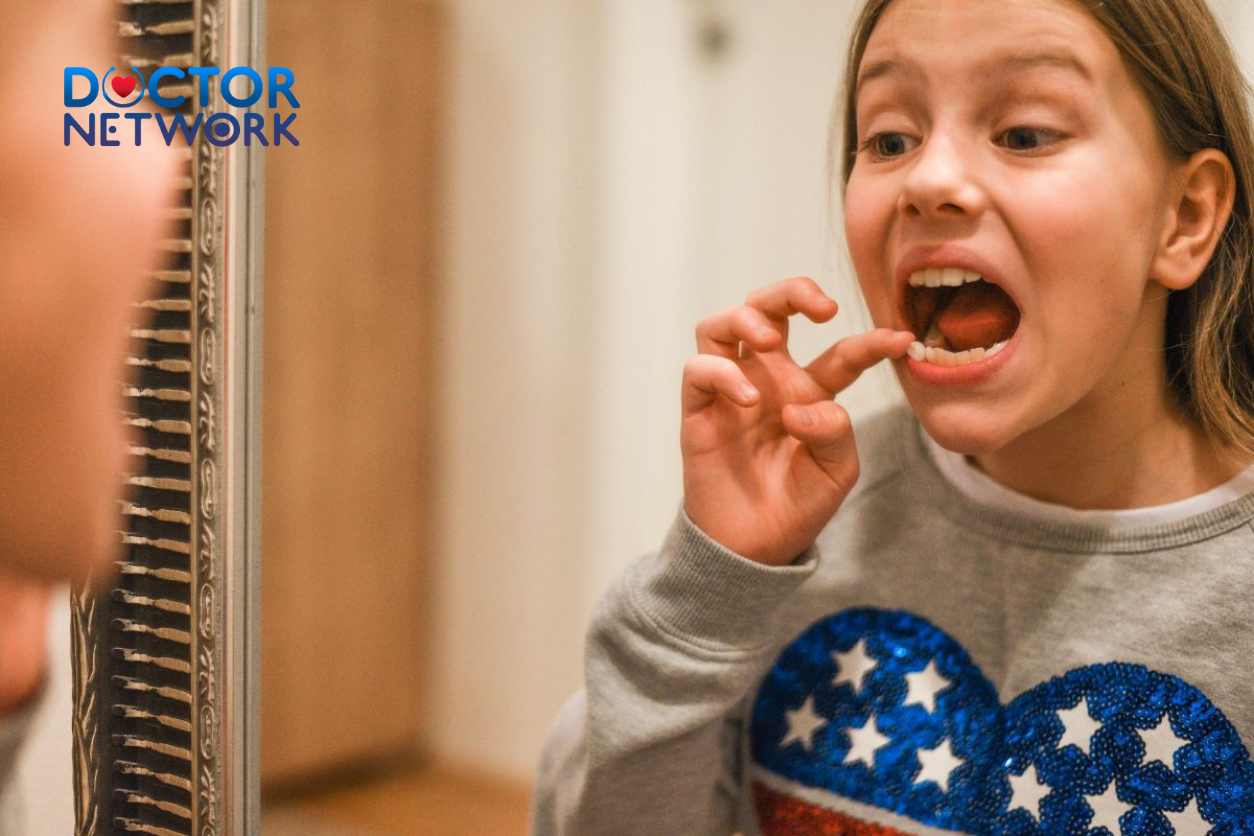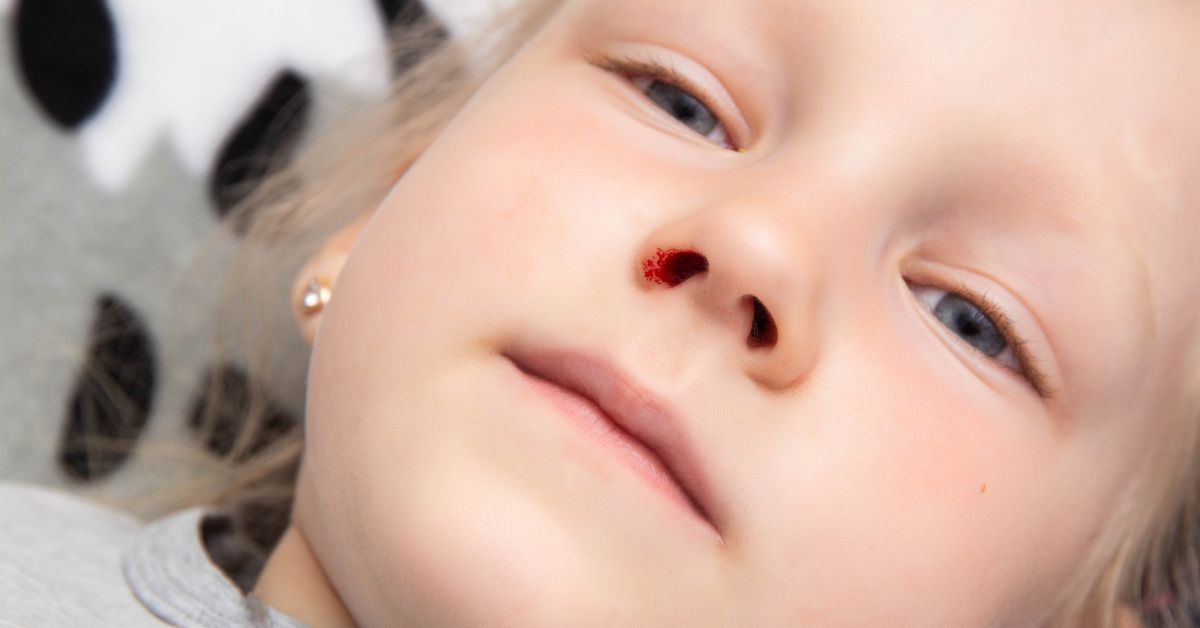Fever is one of the most common symptoms in children. When a baby has a fever of 39 degrees, many parents worry, especially in cases where the “baby has a fever of 39 degrees but still sleeps well” So, is this situation concerning and how should parents handle it?
Causes of High Fever in Babies
- Viruses: Most fever cases in children are caused by viruses such as the flu, respiratory infections, etc.
- Bacteria: Some more severe bacterial infections can also cause high fever, such as pneumonia, otitis media, etc.
- Other Causes: Fever can appear when a child is teething or as a reaction after vaccinations.
Is It Dangerous if the Baby Has a Fever of 39 Degrees but Still Sleeps Well?
Fever is a natural response of the body to fight against pathogens. The fact that a “baby has a fever of 39 degrees but still sleeps well” is not always dangerous. It is essential to evaluate the condition based on accompanying symptoms:
- Baby is alert when awake: If the baby still plays and interacts well when awake, this is a sign that the fever is not too severe. Parents should carefully monitor the fever at home.
- baby has a fever of 39 degrees but still sleeps well – Baby is lethargic and difficult to wake: If the baby is lethargic, sleeps deeply, is hard to wake, or has seizures, vomiting, rashes, etc., parents should take the baby to see a doctor immediately.
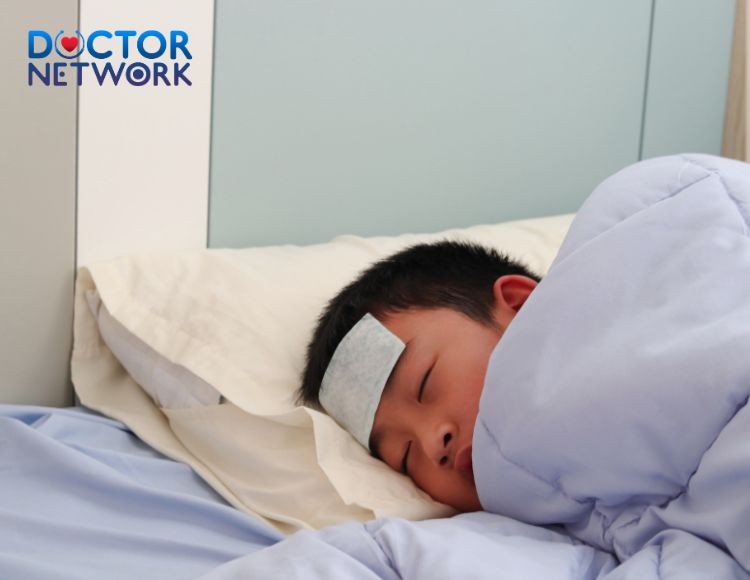
If the baby is lethargic, parents should take the baby to see a doctor immediately
Home Care Tips for a Baby with a 39-Degree Fever
- Lowering the Fever:
- Sponge the child with a warm towel, paying special attention to the armpits and groin areas.
- Dress the baby in loose, cool clothing.
- Use fever-reducing medication according to the correct dosage and doctor’s instructions (paracetamol, ibuprofen).
- Hydration: Ensure the baby drinks water regularly, using filtered water, fruit juices, or oral rehydration solutions (ORS) to avoid dehydration.
- Close Monitoring – baby has a fever of 39 degrees but still sleeps well: Regularly check the baby’s temperature and watch for any unusual signs like rapid breathing, refusal to breastfeed, lethargy, or seizures.
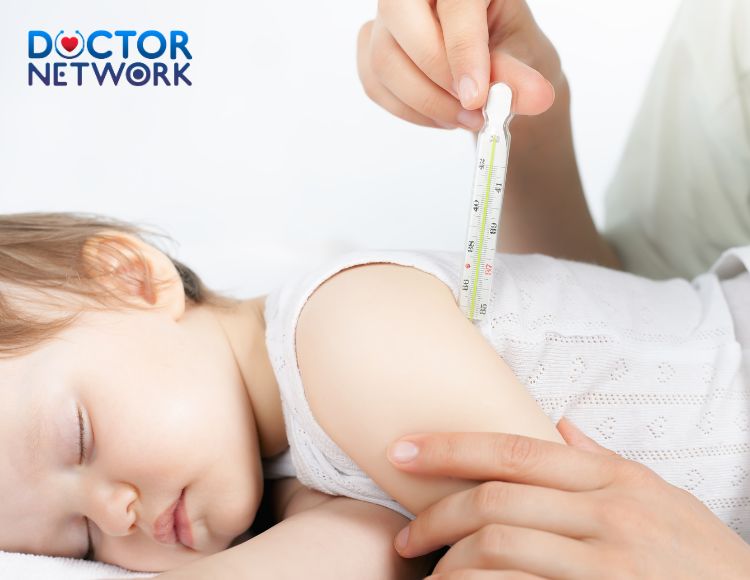
Regularly check the baby’s temperature and watch for any unusual signs like rapid breathing
- Nutrition and Rest: Give the baby soft, liquid, and easily digestible foods. Create a quiet, cool environment for the baby to rest.
When to Take a Baby with a 39-Degree Fever to the Hospital
- The baby has a fever above 40 degrees Celsius.
- The baby has a seizure.
- The baby is vomiting continuously.
- The baby is lethargic, sleeps too much, and is hard to wake.
- Signs of dehydration appear (dry lips, sunken fontanelle, infrequent urination, etc.).
- The baby has a skin rash.
- The fever persists and does not improve after home treatment.
Preventing Fever in Babies
- Ensure timely vaccinations.
- Maintain good hygiene for the baby, including regular hand washing.
- Build a nutritious diet to boost the immune system.
- Avoid taking the baby to crowded places, especially during disease outbreaks.
FAQs about “baby has a fever of 39 degrees but still sleeps well”
- Is it dangerous if a baby has a fever of 39 degrees but still sleeps well?
- Answer: “A baby with a fever of 39 degrees but still sleeping well” may be normal as the body fights the infection. However, parents need to monitor the baby closely since in some cases, this condition, accompanied by dangerous signs such as lethargy, seizures, continuous vomiting, signs of dehydration, etc., requires immediate medical attention.
- When should a baby with a high fever be given fever-reducing medication?
- Answer: Fever-reducing medication (paracetamol, ibuprofen) can be given when the fever is 38.5 degrees Celsius or higher, or if the baby is uncomfortable and fussy at a lower fever. Always consult a doctor about the appropriate dosage based on the baby’s age and weight. Do not misuse fever-reducing medication.
- What should parents do besides lowering the fever when a baby has a fever of 39 degrees?
- Answer: In addition to lowering the fever, parents should:
- Ensure the baby stays hydrated by offering frequent fluids (filtered water, diluted fruit juices, ORS, etc.).
- Dress the baby in cool, sweat-absorbent clothing.
- Monitor the baby’s temperature and any unusual signs.
- Ensure adequate nutrition and rest for the baby.
- Answer: In addition to lowering the fever, parents should:
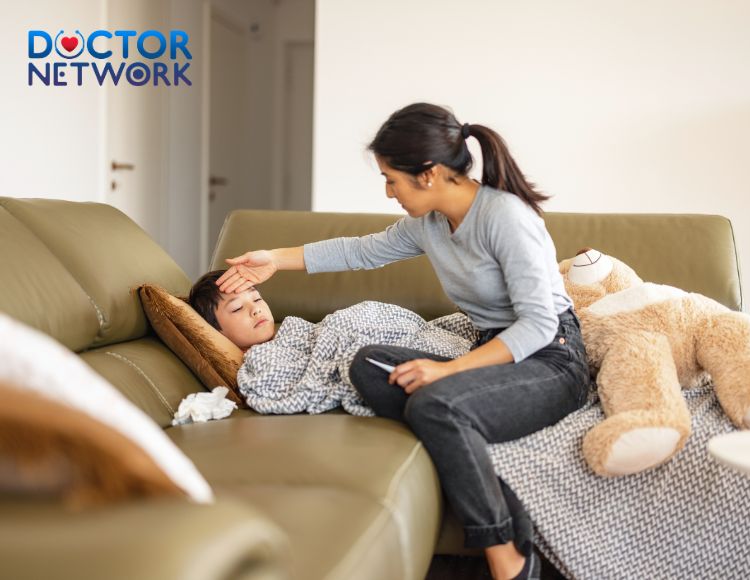
Ensure adequate nutrition and rest for the baby
- When should a baby with a 39-degree fever be taken to the hospital?
- Answer: Take the baby to the hospital immediately if the following signs appear:
- Lethargy and difficulty waking
- Fever above 40 degrees Celsius
- Seizures
- Continuous vomiting and signs of dehydration
- Skin rash
- High fever that does not respond to usual home treatments
- Answer: Take the baby to the hospital immediately if the following signs appear:
- How can high fever in babies be prevented?
- Answer: To reduce the risk of high fever, parents should:
- Ensure timely vaccinations.
- Maintain good hygiene for the baby and the surrounding environment.
- Build a nutritious diet to enhance immunity.
- Avoid taking the baby to crowded places during disease outbreaks.
- Answer: To reduce the risk of high fever, parents should:
Scientific Evidence Related to “baby has a fever of 39 degrees but still sleeps wellkjytra”
- Study by the American Academy of Pediatrics (AAP)
- A study published in the journal “Pediatrics” in 2018 found that 60% of children with high fever (over 38.9 degrees Celsius) could still sleep well. This is because while fever is a natural response to infection, it can affect sleep differently in each child. Some children can sleep well even with a high fever.
- Research by Vietnam National Children’s Hospital
- A study published in the Vietnam Medical Journal in 2020 showed that among 120 children hospitalized for high fever, 35% could still sleep well despite a fever over 39 degrees Celsius. This study also indicated that children who slept well with a high fever were typically younger than six months, had no underlying medical conditions, and had viral infections.
- Meta-analysis by the World Health Organization (WHO)
- WHO states that fever is a common symptom in children and is often not dangerous. However, parents should closely monitor the child, especially when the fever is above 39 degrees Celsius or accompanied by unusual signs such as lethargy, seizures, or continuous vomiting. WHO also recommends keeping the child hydrated, dressing them in cool clothing, and using medication to reduce the fever if necessary.
References:
https://www.aap.org/en/research/
Kiểm Duyệt Nội Dung
More than 10 years of marketing communications experience in the medical and health field.
Successfully deployed marketing communication activities, content development and social networking channels for hospital partners, clinics, doctors and medical professionals across the country.
More than 6 years of experience in organizing and producing leading prestigious medical programs in Vietnam, in collaboration with Ho Chi Minh City Television (HTV). Typical programs include Nhật Ký Blouse Trắng, Bác Sĩ Nói Gì, Alo Bác Sĩ Nghe, Nhật Ký Hạnh Phúc, Vui Khỏe Cùng Con, Bác Sỹ Mẹ, v.v.
Comprehensive cooperation with hundreds of hospitals and clinics, thousands of doctors and medical experts to join hands in building a medical content and service platform on the Doctor Network application.















